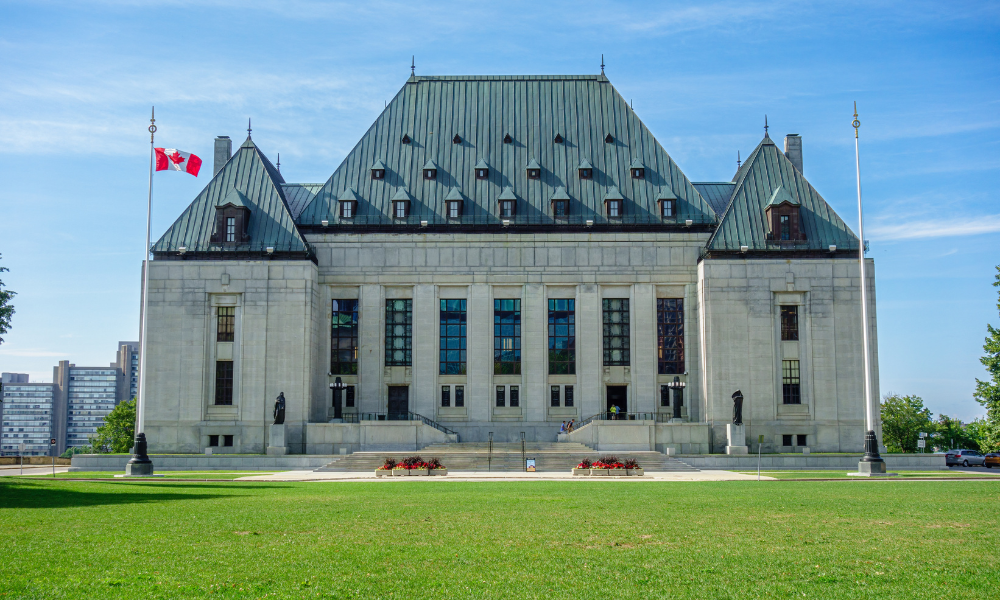
The province's legal stance dismantles more than mobility – it unravels our federation

The Supreme Court of Canada heard its first COVID restriction case on April 15 and 16 in a Charter challenge called CCLA v Newfoundland and Labrador. This is a rare opportunity for the court to define the scope of mobility rights guaranteed in s. 6 of the Charter. The case involves a woman named Kim Taylor who wanted to travel to Newfoundland to attend her mother’s funeral. Taylor, who lived in Nova Scotia, was initially denied the right to enter Newfoundland in May 2020 because of COVID restrictions by Newfoundland’s chief medical officer of health.
The case is unusual because it will deal with whether a right to cross provincial borders for reasons other than work or relocation exists in the Charter. While s. 1 is in dispute, the most interesting question is whether Taylor’s rights were violated when Newfoundland denied her entry during the pandemic. The Newfoundland government has taken the shocking position that it did not.
This position is a surprise because it contradicts the constitutional protections of mobility in ss. 6(1) and 6(2) of the Charter. These provisions guarantee the right to enter, remain in and leave Canada, as well as the right to move to and take up residence in any province and pursue a livelihood in any province. However, Newfoundland has argued that s. 6 does not include the right to mobility simpliciter: the right to move about between provinces for purposes like leisure, tourism, or, in this case, a funeral.
Newfoundland’s interpretation is contrary to the plain text of the Charter, goes against case law dating back to the 1950s as well as much older principles of English law, and would undermine the very structure of Canada’s constitution. It is indefensible and an unprecedented attempt to undermine the fundamental rights of Canadians and impose expansive powers of state control onto citizens.
First, the text of s. 6 of the Charter is unambiguous. Section 6(2) guarantees the right to “move to and take up residence in any province.” This disjunctive guarantee includes the right to “move to” and “take up residence” in other provinces. If the intention of the drafters of the Charter had just been to protect relocation, only that one word would be required. “Moving” to a place has a broader meaning, which could include simply moving about for travel, while “take up residence” means relocating. This is clarified further when you consider the French text of the Charter, which is unambiguous. The French text of subs. 6(2) protects the right “de se déplacer,” which means “to move” in the sense of “to get around” or “to travel.” There is a separate French work for relocating or changing residence: déménager. If the intention had been merely to protect relocating, the drafter of the Charter would have selected different words.
Existing case law also indicates that the right guaranteed in subs. 6(2) of the Charter protects the right to travel between provinces. In Black v Law Society of Alberta, the Supreme Court held that a purposive interpretation of subs. 6(2), which considers the intention of the right, is to protect a citizen's right to “move about the country.” In Canadian Egg Marketing Agency v Richardson, the Supreme Court held that the subs. 6(2) protects the right to “move about, reside, and work” in any province and these rights were also acknowledged in the pre-Charter case of Winner v SMT (Eastern) Ltd. in 1951.
But beyond this, their right to travel between provinces is a fundamental assumption underlying Canada’s constitutional structure. Other constitutionally protected rights will be diminished or violated without a right to interprovincial travel.
For example, s. 24 of the Charter allows anyone whose rights or freedoms have been infringed or denied to apply to a court of competent jurisdiction. Claimants may need to travel to Ottawa to be heard before the Supreme Court to exercise those rights. Without a right to mobility simpliciter to go to Ottawa, these rights would be diminished.
Section 5 of the Charter clarifies that members of Parliament must sit in Parliament in Ottawa, which requires travel to Ottawa. Subsection 6(2)(b) of the Charter makes it clear that there is a right to “pursue the gaining of a livelihood in any province”; participating in democracy as a member of Parliament entails more than gaining a livelihood. Without a right to mobility, there would be no right for citizens to travel to Ottawa, the seat of our democracy.
Additionally, s. 91 of the Constitution Act, 1867, outlines the federal government’s powers and responsibilities, specifying areas where the federal Parliament can legislate. Many areas inherently require or presuppose a right to interprovincial travel, such as the postal service, military, ferries, and local works and undertakings. Sections 91 and 92 of the Constitution Act, 1867, set up a country that assumes interprovincial mobility. The enactment of the Charter s. 6 guarantees would not operate to derogate from that right to mobility simpliciter.
But at its core, it’s also important to remember the facts of the case.
Kim Taylor wanted to attend her mother’s funeral. The Newfoundland government at first denied her an exemption from travel restrictions even though she was facing extenuating circumstances. When she and the Canadian Civil Liberties Association challenged the restrictions, the government argued that the Charter does not even guarantee the right of people to move between provincial borders, contrary to the notion of a single unified nation. Instead of granting those rights, or even acknowledging that they were infringed, the Newfoundland government is at the Supreme Court attempting to forever diminish them and redefine what Canadian nationhood means. This must be resisted.